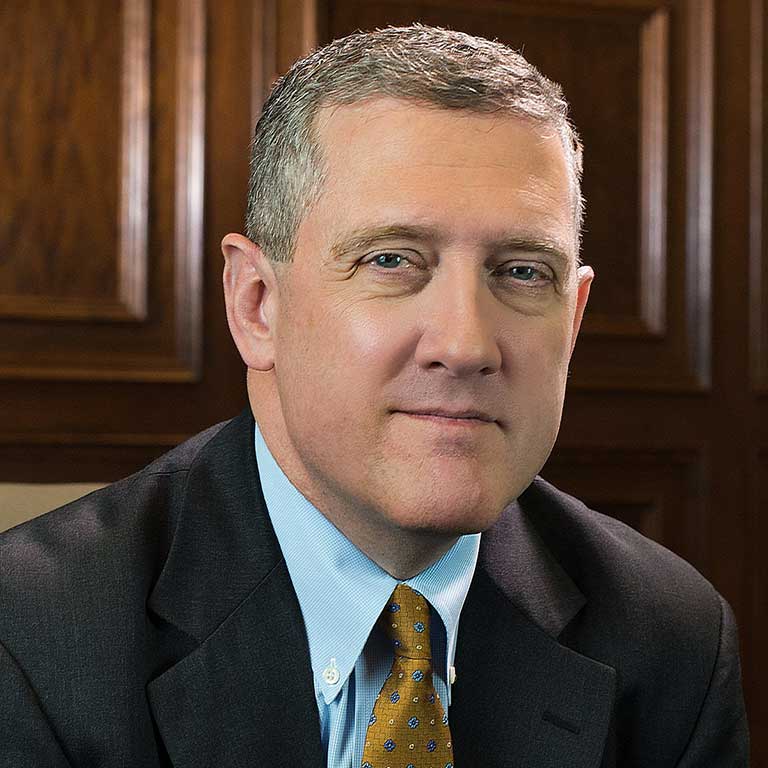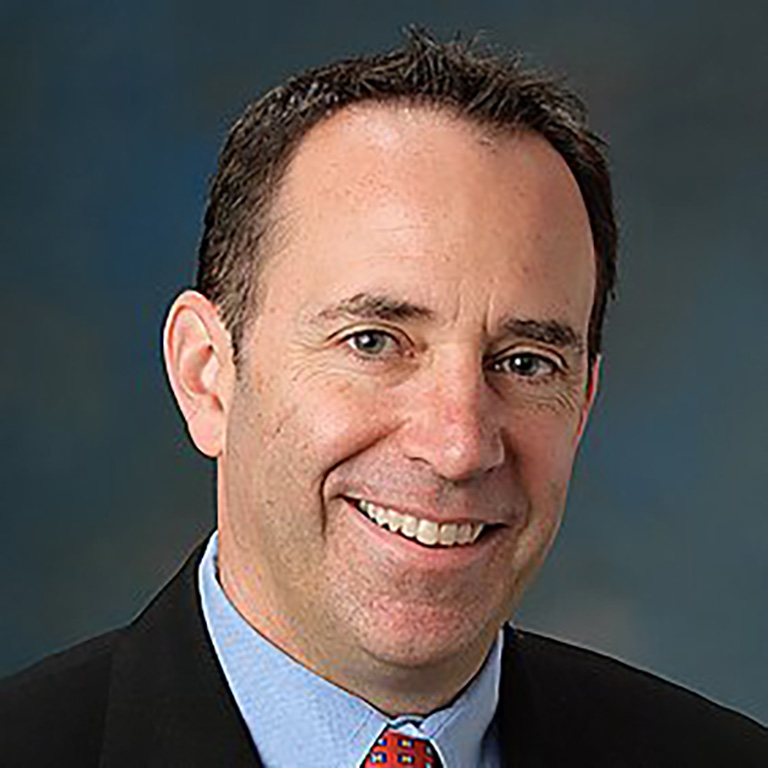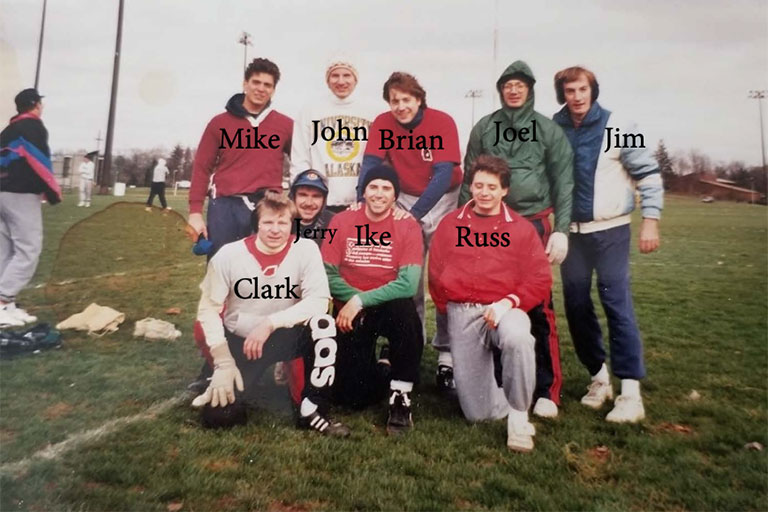The graduate students fielded teams in softball, basketball, soccer, and bowling, and several of those teams competed for all-school championships at one time, but its intramural 8-man football team was its best-known and most-accomplished squad. From 1988 to 1993 the team went undefeated each year in the eight-game regular season. It qualified for the post-season tournament each year and twice reached the semifinals in a competition with over 400 teams.
How did the team excel? Mike Gorman, an endowed chair in the Business Analytics Department at the University of Dayton who played tight end and linebacker on the team, attributed its success to the team’s continuity, as well as its regular Friday afternoon practices. When the team began in 1988 the team consisted mainly of first-year graduate students, and most of them were still around--and playing--in 1993.
Most other flag football teams on campus were undergraduates who played tackle football in high school, but this was their first flag football competition, Gorman explained, and the differences between tackle and flag football are subtle but very real. The econ department’s graduate students were already accustomed to flag football from their undergraduate years, giving them another leg up. By the early 1990s some of them had been competing in the sport for nearly a decade.
Jim Palmieri, a senior policy adviser at AARP who played offensive and defensive end, also noted that the IU econ team made some deft strategy choices that gave them an advantage. While nearly every other team kept two men in the offensive backfield to help give the quarterback a little extra time to find a receiver, the econ department team used everyone but the quarterback as a potential receiver. The team figured out from its weekly practices the additional time wasn’t as valuable as having more receivers.
“Every team rushed two players and had a safety playing deep: we always sent one player on a deep route to take his cornerback out of the picture and occupy the safety, which left us with the remaining six receivers guarded by four defenders,” Palmieri recalled. Two decades before it became a standard part of college and pro football, the IU econ football team was running a spread offense.
It also helped that the team had a surfeit of capable players, Gorman noted. “One season we scored on literally every possession. It felt like no one ever dropped a pass and we never went a game without at least getting one interception,” he recalled.
Russell Guindon, a fiscal analyst for the Nevada Senate who played center and linebacker, remarked that the team benefited from its knowledge of game theory. “We were good at goading our opponents into doing precisely what we wanted them to do. I played center--a position that most other teams never threw to--and in the first half I often did little, so teams stopped covering me. In the second half I became active and most teams never adjusted.”
Mike Mysker, who is an investment adviser in Salt Lake City and Chicago, said his favorite victory was the one that got them into the 1993 all-school semifinals. With the Fighting Economists up by 1 point with 90 seconds left and a 4th and 5 deep in their own territory, the team skipped a punt and went for the first down--which it got by drawing the other team offside by changing the cadence and the snap count.
Former players all said that their enjoyment of the game went beyond the team’s successes; Chris Richardson, who is currently a consultant as well as the author of the forthcoming book Civil Rights Economics, said that the practices were more memorable than the games. “I really liked getting together and hanging out with smart guys who were traveling the potholed road of grad school, and it made me feel like I wasn’t alone.” He said that his most vivid memory was being laid out when running a route over the middle during a practice and needing to go to the hospital and get stitches--which did not prevent him from playing in the next game, he hastened to add.
John Powers, who was the assistant director for economic analysis at the Public Company Accounting Oversight Board, said he was happy to find a group of guys to hang out with and remind him that normal stuff still existed while grinding through classes and exams. “It was fun to compete against undergrads and the occasional team from the business or law school, and it was gratifying during those stressful first two years of grad school to be a part of a team that worked so well together and had so much success.”
The department’s football team eventually disbanded in the early ‘00s and its trophies got lost when the department moved to Wylie Hall, but most of the teammates have remained in touch and occasionally reconnect to celebrate the team’s successes.




 The College of Arts
The College of Arts